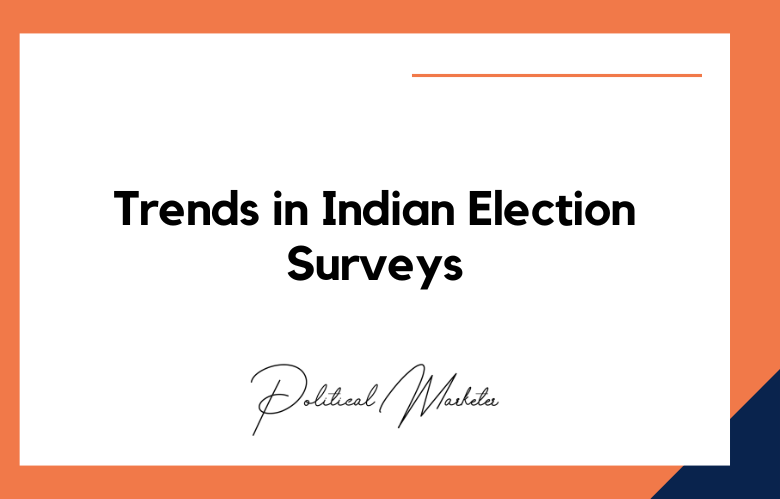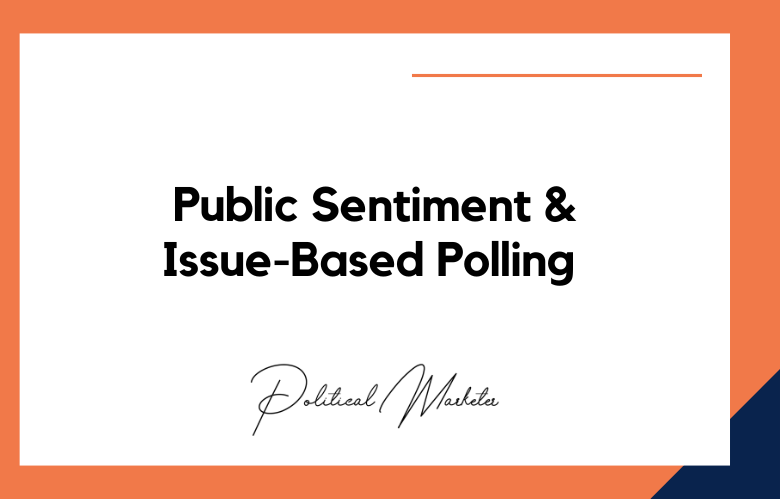Political market research is a powerful tool to help candidates and organizations gain insight into their target audiences. This research involves strategic political segmentation and profiling to identify potential voters’ attitudes, motivations, and behaviors.
By understanding your voters’ opinions, you can better craft an effective campaign strategy that resonates with them. Let’s take a look at what political market research entails.
Political market research is a critical component of any political campaign. It helps campaigns target specific segments of the electorate and develop strategies to win their votes.
By segmenting and profiling voters, campaigns can better understand their needs and develop messaging that resonates with them. Let’s explore why political market research is so crucial for successful campaigns.
What is Political Market Research?
Political market research focuses on understanding the thoughts, feelings, and motivations of people likely to vote in an election.
This type of research helps a campaign realize what issues are necessary to its target audience and how best to reach them.
It also helps campaigns identify which voters they should target with their messaging.
The process of political market research involves collecting data from multiple sources, including surveys, polls, focus groups, interviews, etc., and then analyzing that data for insights about potential voters.
This data can create voter profiles based on age, location, income level, education level, party affiliation, etc., informing strategic decisions about targeting those voters.
Political market research is gathering data about voters and using that data to help shape a campaign’s strategy. It involves analyzing polling data, conducting focus groups, interviewing key stakeholders, and more.
These activities can give campaigns insights into voter attitudes and preferences and how they view various issues. Political market research aims to uncover previously unknown information about voters and their feelings about specific issues or candidates.
Why is Political Market Research Important?
Political market research can give campaigns valuable intelligence that can be used when crafting messaging for television ads or direct mail pieces. It can also help campaigns better understand what the electorate wants from them and how best to reach those voters.
Political market research can provide insight into how effective current strategies are or if any changes need to make to strengthen a campaign’s presence among its targeted audience.
Types of Political Market Research
There are two main types of political market research: strategic political segmentation and voter profiling.
Strategic political segmentation involves dividing a population into smaller segments based on factors like age, gender, or race to understand their beliefs and motivations better.
Voter profiling takes this one step further by exploring individual characteristics such as lifestyle choices or interests to gain deeper insight into why someone might vote for a particular candidate or party.
Both types of research can provide valuable information that campaigns can use to inform their strategy for reaching potential voters.
What is Strategic Political Segmentation?
Strategic political segmentation is a process used to divide potential voters into groups based on shared characteristics such as age, gender, occupation, and location. It helps campaigns understand which segments of voters are most likely to support their candidate or issue and craft messages tailored specifically for them.
For example, suppose you’re running for office in an urban district. In that case, you may want to focus your efforts on younger voters who live in densely populated areas, as they are more likely to be politically engaged than older demographics.
The first step in political market research is segmentation. It involves breaking down the electorate into smaller, more manageable groups based on demographic characteristics such as age, race, income level, education level, location, and gender.
Segmentation allows campaigns to focus on an election’s most critical voting blocs. For example, a candidate running in a state or district with many Hispanic voters may want to focus their campaign efforts on this demographic segment.
What is Voter Profiling?
Voter profiling collects data about potential voters to gain insight into their behavior and preferences. This data can order through surveys, interviews, and other sources such as social media analytics or website traffic data.
Voter profiling allows campaigns to understand the needs of their target audiences better so they can create more effective messaging that resonates with them.
Once the electorate has segmented into smaller groups, it’s time to start profiling these voters.
Voter profiling involves learning more about what these smaller groups care about, what motivates them politically, and how they select candidates and issues at the ballot box.
This process can involve surveys, interviews with voters, and data analysis from past elections to identify trends among different voter segments.
By honing in on specific voter segments and understanding their unique needs and motivations, campaigns can craft messages that resonate with them and increase the chances of winning their votes on election day.
The benefits of Political Market Research
Political market research provides valuable insights into the voting public that can help candidates and campaigns craft their messaging accordingly.
It allows them to understand what issues matter most to the voters they are targeting and what motivates those voters to support or oppose particular candidates or policies. This data can tailor messages and strategies to appeal to each voter segment.
Political market research is about gathering public data to make informed decisions about reaching those voters.
Researchers use surveys, focus groups, interviews, polls, and other data collection methods to build detailed profiles of potential supporters or opponents.
By analyzing this information carefully, campaigns can gain a clear picture of their key constituencies and how best to engage with them—which could mean anything from crafting tailored messages on social media or direct mail pieces to holding specific events tailored toward certain segments of the population.
The political market research also helps campaigns create targeted messaging that resonates with specific segments of the population—which could translate into increased support among those voters. For example, suppose a campaign discovers that Millennials tend to favor certain policy positions over others.
In that case, they can tailor their messaging to appeal to that demographic group’s preferences or concerns.
This targeted approach has proven effective in past elections—and it will likely only become more critical as political strategists continue finding new ways to leverage technology for more precise voter targeting efforts.
Political Market Research – Understanding Your Voters
Data Gathering and Analysis
Political market research starts by gathering data about the electorate. This data can include demographic information such as age, gender, ethnicity, income level, political affiliation, voting history, and more. It can also include attitudinal data such as opinions on essential issues and preferences for specific candidates or policies.
All this information is collected and analyzed to understand better the electorate and how they might respond to different messages or campaigns.
Target Audience Identification
The data has been gathered and analyzed; it’s time to identify your target audience. It involves using the insights from the data analysis to determine which groups are most likely to vote for you or support your policies.
Knowing your target audience allows you to craft targeted messaging that speaks directly to their needs and concerns to engage them more effectively with your campaign.
Message Testing
Once you have identified your targeted audience, it’s time for message testing. It involves crafting several messages for different demographics within your target audience to see which resonates most strongly with them.
This allows you to hone in on the messages that will have the most significant impact during election campaigns. It also helps ensure that your messaging doesn’t come across as out-of-touch or tone-deaf when attempting to appeal to specific demographics within the electorate.
Data-Driven Insights
Political market research provides valuable data-driven insights into potential voters’ needs, wants, attitudes, and behaviors. Knowing what motivates people to make decisions is critical to crafting effective campaigns.
With political market research, you can identify key trends in voter behavior that can inform your campaign strategy.
For example, with the correct data, you can determine which issues are most important to specific demographics or regions within your district.
Campaign Messaging
Political campaigns rely heavily on marketing and messaging strategies for success.
A successful campaign must have an authentic message that resonates with its target audience. Political market research helps you craft this message by giving you an in-depth understanding of who your target audience is and what you care about most.
By using data-driven insights from political market research, you can ensure that your message speaks directly to the needs of your voters, helping them better connect with it and driving more support for your candidacy or cause.
Tactical Planning
Political campaigns require careful planning if they succeed in the long term.
The political market research gives you access to the necessary data to develop a comprehensive tactical plan that considers current voter sentiment, potential changes over time, and trends related to other candidates in the race.
This kind of insight allows you to plan strategically to maximize your impact at every stage of the election cycle.
Surveys & Questionnaires
Surveys and questionnaires are excellent ways to gain insight into the thoughts and feelings of potential voters.
You can understand their values and beliefs by asking specific questions about the issues that matter to them.
Surveys can help you identify what characteristics or policies are most important to them a potential candidate for office, providing you with invaluable information to help shape your campaign strategy.
Focus Groups & Interviews
Focus groups and interviews allow candidates to interact directly with potential voters to gain further insight into their opinions and motivations.
These methods allow candidates to listen to what matters most to their constituents so they can craft strategies that address those issues head-on.
Focus groups allow candidates to discuss topics with a larger group of people, while interviews provide more individualized feedback from community members.
Analytics & Reporting
Analytics and reporting tools offer valuable insights into voter behavior.
By analyzing voting trends over time, candidates can determine which demographics are most likely to vote for them and what steps need to be taken for specific populations to support them or turn out on election day.
Analytics also provides data on how effective campaigns have reached specific audiences and what strategies need adjustment for them to be more successful in the future.
Conclusion
Political market research is essential for any candidate or organization looking to run an effective campaign.
By understanding your target audience through strategic political segmentation and voter profiling, you can create targeted messages that resonate with potential voters and increase your chances of success at the polls.
You can refine your campaign strategy with the correct information and ensure it reaches its intended audience meaningfully.
Political market research is an essential part of any successful campaign strategy.
Through strategic segmentation and voter profiling, campaigns can gain valuable insights into what will motivate different voter segments in an election cycle.
With this information, candidates can craft targeted messages that appeal directly to specific voting blocs and increase their chances of success at the polls!
Political market research is an invaluable tool for running successful campaigns.
Strategic political segmentation and voter profiling allow campaigns to gain insight into the thoughts and motivations of potential voters so that they can tailor their messaging accordingly.
By utilizing these tools effectively, campaigns will have a greater chance of success at the polls on election day.
To successfully win an election, candidates must have an intimate knowledge of their target audience – who they are, what they care about, and how they make their voting decisions.
With this information, it can be easier for a candidate or campaign to craft effective messaging that resonates with voters.
Political market research can provide the necessary intelligence to succeed at the polls.
By understanding your voters through political market research, you’ll have all the tools you need to develop an effective campaign strategy that reaches your target audience effectively and efficiently.
To be successful in today’s highly competitive political marketplace, it is essential to have accurate and modern information available. We offer a maximum range of services, from strategic political segmentation and voter profiling to polling and media consulting.
We pride ourselves on providing our clients with the customized research they need to win elections. Contact us today to learn more about how we can help you achieve your campaign goals.
Call: +91 9848321284
Email: [email protected]











